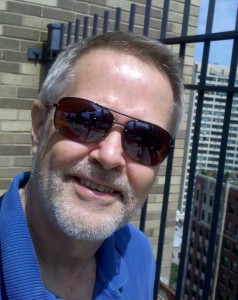This month one of Chicago’s public radio stations, WBEZ (91.5 FM), has kicked off a fascinating and timely series about water, science, and the humanities. It’s called After Water, and according to the series’ website, the project asks “writers to peer into the future—100 years or more—and imagine the region around the Great Lakes, when water scarcity is a dominant social issue. It’s a cosmic blend of art and science . . . [that will feature] stories, research, photos and more.”

Kicking off the series this week was a Morning Shift conversation on WBEZ with my longtime Roosevelt colleague, Dr. Gary Wolfe (the guy who hired me, by the way), one of the world’s foremost authorities on the literature of sci-fi and fantasy. Gary was in the house to talk about the emergent genre of “cli-fi,” or fiction about climate change, and its relation to water issues. Not only was Gary completely at home in this milieu due to his many years’ experience doing his own radio show in Chicago, “Interface,” but this gig was an apt follow-up to his teaching of a Special Topics SUST 390 seminar this past spring entitled “Sustainability in Film and Fiction.”
I look forward to following the stories and images within this unfolding After Water series, as it’s a great example of the need to integrate science and the humanities in constructing compelling narratives about the crisis of climate change, a subject I addressed briefly in this short essay from last summer.